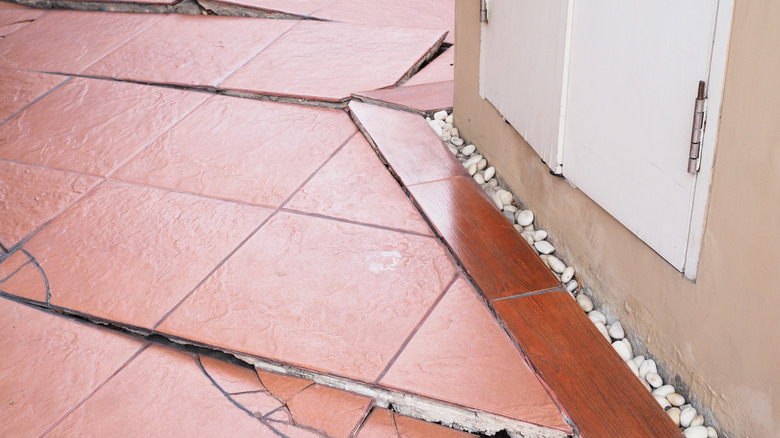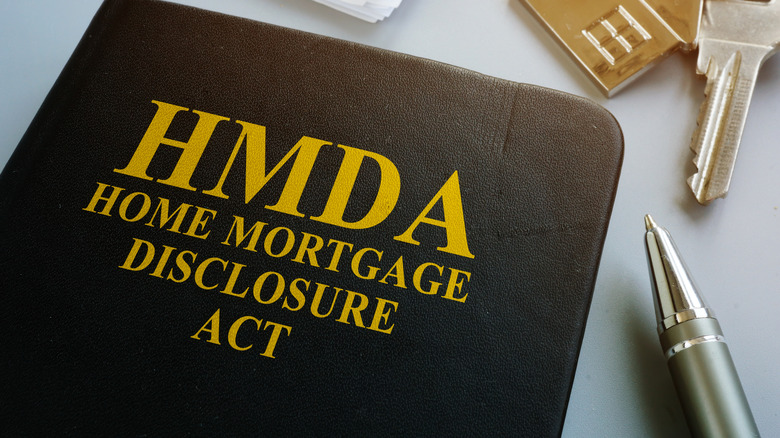5 Hacks To Help You Ace A Home Inspection
Whether you are looking to buy a new home or invest in real estate for a future profit, you cannot escape the inspection process. And the level of your meticulosity when it comes to looking through potential homes determines if you'll be getting value for your money at the end of the day. One of the numerous problems you may encounter during the home search is locating shrewdly hidden anomalies, and to avoid this, a lot of research has to be carried out, writes Scoop Whoop Media.
Another problem associated with getting the right home during your search is falling into the hands of dishonest and tricky sellers (via BankBazaar). From setting up faux décor and feigning ignorance about household issues to hiding defects ... the list of sneaky tricks is endless. To help you on your hunt, we have compiled some of the oldest tricks in the book and explained just how to avoid falling prey to them.
And, if you're trying to sell your home, here are the crafty ways you can possibly get through home inspections without getting stuck with a slow-selling home. While you don't want to pass your lemon of a house off to an unsuspecting buyer, you do want to move on to your new life.
Concealing home defects
For most sellers, it's all about selling the house, earning a profit, and moving on even when there are huge damages within. According to Robertson Homes, a seller can apply fresh paint over plumbing or foundation leaks for the inspection period, which eventually turns out to be noticed when not properly checked. While touring the house, be your own home inspector and watch for freshly painted areas, then inquire as to why the spot got a refresher coat.
Another seller coverup trick is having the TV or music on as you move around the home, says HuffPost. You may not think twice about the somewhat louder ambient music, but it's a great way to distract you from noticing noisy neighbors, traffic, or nearby factories. No one wants to stay where the noise can't be controlled, right? So, whenever you walk into an apartment with music on, ask them to turn the stuff down or, better yet, off.
Before you leave, that beautiful landscape and display of ornamental trees may be saying something. According to Glass House Real Estate, sellers sometimes arrange some lovely flowers and shrubs in areas where there's a sign of exterior water damage. While you're busy appreciating the beauty of nature, take a thorough check behind those garden rows. Home Light advises always asking for receipts, invoices, and warranties when in doubt about anything — like work they've claimed to have done on the well pump.
Commonizing issues
Is the seller or real estate agent snapping at every question? Or is there a quick utterance of "it's a common thing everywhere?" That's another trick to leave important things unattended during the inspection. According to U.S. News & World Report, many homeowners deliberately generalize issues because they've decided not to notice the obvious. Instead, they focus on the positives and will try to change your mind.
From another view, sometimes, the issues are beyond the fault of the current owner, like the location of the home. However, problems like bad or peeling paintings, plumbing, or electrical problems are a clear indication of low maintenance. Another example is noticing a temperature shift in the room, which is a clear indication of an insulation issue, according to Realtor, and the seller may try to conceal this by downplaying the issue (there's a breeze from a door or window, they had the windows open overnight, etc.).
Whenever you experience these types of things during a house inspection, ask for evidence showing ways the issue has been repaired. Also, check for major signs showing a lack of maintenance in the home like a dusty AC, leaking roof, and lots more. If there's no proof, then you need to take action. Home Light points out that some may not be able to afford the burden of high-expense repairs, which could also be why the owner is letting the home go.
Suspicious décor
Sellers sometimes make mistakes with staging their homes for sale — keeping too much personal stuff around and having too much furniture and decor left behind. This can look bad to a buyer and make them wonder what's hiding behind all of those distractions. Though there is no general rule about furniture staging, Sentry Home Inspection Services points out that furniture is a great way to cover up pesky issues like mold and holes in places they don't belong. It helps to be sure to check behind everything that's moveable while looking around the home — in fact, home inspectors prefer it if clutter is removed from homes before they come through, according to FortuneBuilders.
While real estate agents stage homes to perfection with all the right things, including smells, you don't want to entirely trust a home with an overpowering scent of candles or baked cookies — they may be covering something up. Candles and air fresheners can cover up the smell of mold, pets, and more.
There may be nothing wrong with checking behind furniture and open cupboards; you still don't want to get too intrusive while inspecting the home (that will be the job of the home inspector when you get to that point), but be sure to check the basement, crawl space, attic, and other out of the way areas that could show signs of trouble in a home.
Restricting access
Though someone else still owns the home, you and the home inspector both have the right to check through the rooms in the building before making a purchasing decision. According to Total House Inspection, you can check through the bathroom, the exterior of the home, kitchen, rooms, windows, doors, roof, attic, structure, electricity, living room, basements, and other places in the home. However, you will need to get a professional in to check out things like the plumbing, water heater, and furnace.
According to Waypoint Property Inspection, the home sellers are required to prepare the home adequately for the inspection process, but the inspector cannot do repairs. If the current owner prevents you from entering some parts of the home, then document the areas down and bring them up after inspection — what are they hiding? Closed-off parts of a home could (and maybe should) be a dealbreaker.
Pretending to be unaware
The law requires that the home sellers should disclose every fault within the home in the disclosure form, even when not stated orally during the inspection. If you purchase a home and find out it's got problems you weren't told about, U.S. News & World Report says that you can take them to court, depending on the laws in the area in which you live. According to New Venture Escrow, the disclosure form contains all the information about the property, including its age and the present condition of the items within, including the defects and structural errors. Not all states use this form, but it is definitely information a potential buyer wants to see before writing that check.
While some sellers may pretend not to know what kind of shape their home is in, according to Conroy, Conroy & Durant, P.A, that doesn't always mean they're trying to dupe a potential buyer. Just because you live in a home for years or decades, things can go wrong, and you may not find out about them until you're trying to sell.





